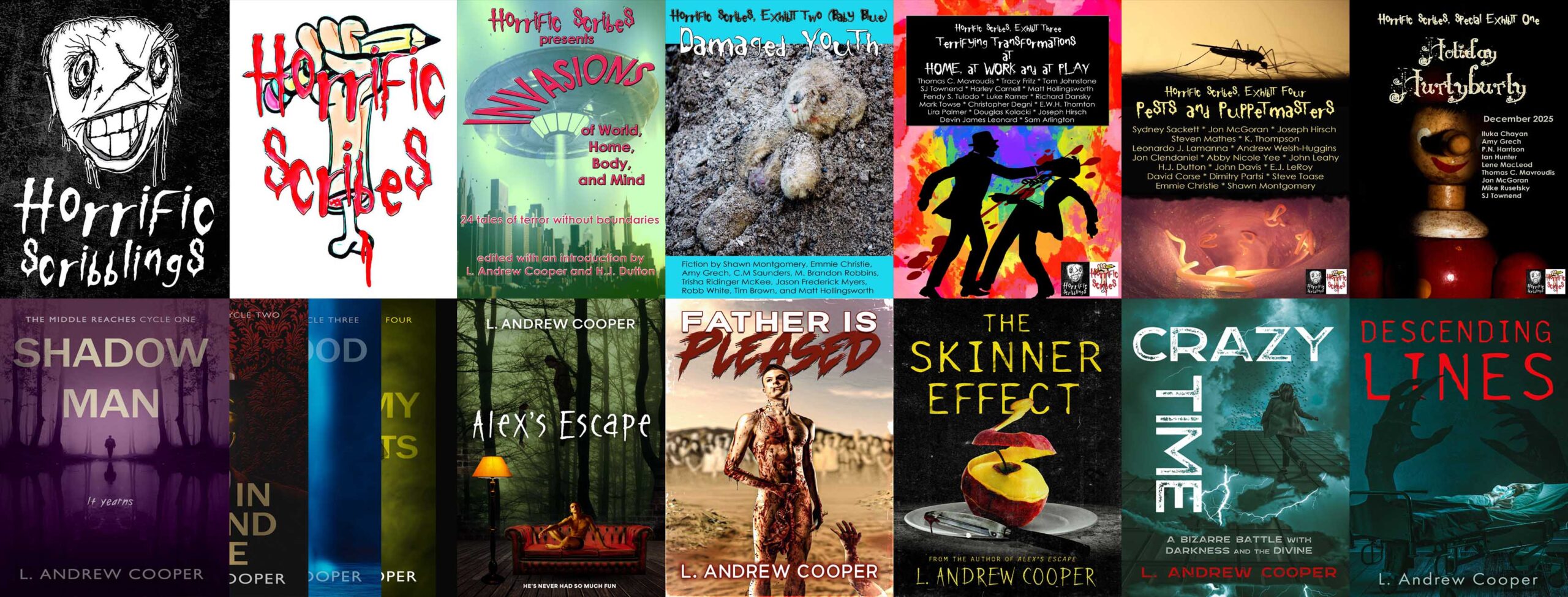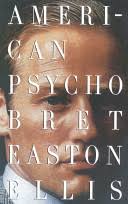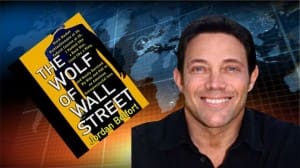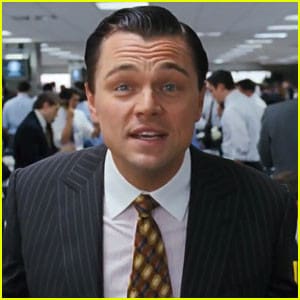The Internet Movie Database, (IMDb), lists Martin Scorsese’s The Wolf of Wall Street as belonging to Biography, Comedy, and Crime genres, and according to the film’s Golden Globe nomination, it’s either a Musical or a Comedy. My title’s way of pointing out that there’s a wolf hiding in the title’s–as well as the dramedy’s–clothing may be sort of lame and obvious, but then again, IT’S RIGHT THERE IN THE MOVIE’S TITLE, which comes from the title of the book written by the criminal of whom it is a biography, Jordan Belfort, so the originator of the obviousness is this man:

He tells the world he’s a wolf, but he still makes a career on charm, and The Wolf of Wall Street tells you it’s a movie about a monster masquerading as a human being like many a fiend from a fairy tale, but it still passes as comedy because it’s so damned charming. A lot of brilliance has and will continue to be attributed to this movie, but I’m mesmerized by the way it becomes a hall of mirrors more intense and, ultimately, more horrific than earlier Scorsese-DiCaprio collaboration Shutter Island: the movie’s misleading charm is the same as its central character’s, and those of us charmed–and it’s hard not to be charmed by this nutty, offensive, but ideologically so very American movie–are the sheep and granddaughters so eagerly devoured by the wolves who live in the woods of fairy tales. And fairy tales are usually horror stories, just as the way Wall Street charmed and devoured the wealth of the American masses is a horror story, the story that Jordan Belfort’s and Martin Scorsese’s story epitomizes. And Leo DiCaprio, so recently embodying the Great Gatsby and that man’s American Dream gone awry, crosses directly into the American Nightmare, into a man with a backstory like Gatsby’s but an appetite like Patrick Bateman’s.
Bottom line: The Wolf of Wall Street is a horror movie, and if you leave the theater without realizing that, it’s even more horrific because it has succeeded at eating even more of your soul. I therefore think it’s pretty awesome.
Why, after you’ve eaten all this tasty popcorn on top of a morality tale in which the bad guys get caught (based on a true story; no such thing as spoilers), might you feel lighter a soul-chunk? First of all, my parenthetical about spoilers almost isn’t necessary because “caught” is debatable. As a quick visit to a book shop/site can tell you, Jordan Belfort profited from the book The Wolf of Wall Street, a sequel, and now a reprint movie tie-in edition of the original book. Perhaps that helps you feel a little lighter soul-wise.
Second, and much more important, much of the story has the same appeal of the comic book super hero stories that are responsible for so much box office these days. A young man comes from almost nothing, finds out he has this amazing gift (selling almost anything to anyone), develops it into amazing powers (making almost a million dollars a day), and uses it to fulfill his own desires (lots of sex, drugs, and assets) as well as those of his friends (ditto his) and the occasional random stranger (ditto his) whom his immense power allows him to help. It’s pure adolescent hetero-male wish fulfillment, and it’s accessible to some women even though the movie is as sexist as the fantasies it generally portrays. Heck, the movie’s pervasive homophobia is only barely undercut by putative separation of hate speech from actual hate, but this gay male viewer found the straight male fantasies often unrelatable but completely compelling, making the three-hour run-time fly by.
And last but not least, it’s all quite funny and charming. Leo finally outgrew looking like a teenager, but just as his character would, he can still turn on a lost-puppy look that makes even forcing him to face his own piles of mess seem too harsh. Like many people watching films that take a criminal’s perspective, I couldn’t help sympathizing, sometimes even empathizing, with the wayward anti-hero, even liking him, even rooting for him, all the while I knew he not only deserved to be caught but needed to be caught for the good of the American people. Nevertheless, every speech he gives about how his rags-to-riches Wall Street “opportunities” are the American Dream, the essence of what everyone wants (well, regular people, as Jordan has to admit at one point) hit the patriotism button so hard-wired into me that all attempts to disconnect it have failed. I wanted to cheer just like people on screen inevitably do, and each time I wanted that, the wolf took a bite. My only defense was that I knew he was biting me–I knew this movie was not about victimless crimes but about what led to one of the worst crises the world has seen in a century–so I was able to push that charming muzzle away before it chomped out too much flesh.
There’s almost no blood in this movie. It’s all over us, so this time, Scorsese doesn’t need it. Are you thinking, “duh”? If so, when someone asks you what kind of movie The Wolf of Wall Street is, you should say, “horror.” Duh.





Comments are closed.